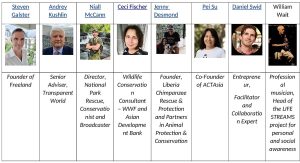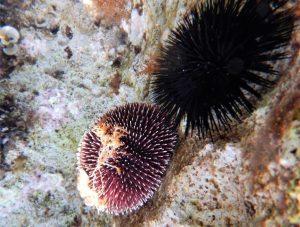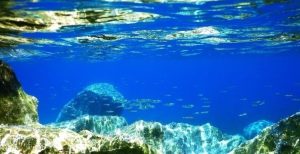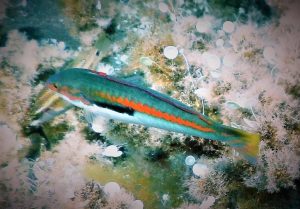Founded in March of 2020, EndPandemics is a dynamic, global alliance of worldwide organizations — representing conservation, climate, health, finance, security, agroforestry, business, technology, and communications — that has launched a global coordinated campaign to reduce the risks of pandemics by addressing the root causes of all zoonotic outbreaks—rampant wildlife trade and the destruction of wild habitat.
PEAH had the pleasure to interview Steven Galster, Andrey Kushlin, Niall McCann, Ceci Fischer, Jenny Desmond, Pei Su, Daniel Swid, and William Wait as members of the EndPandemics Coordination Unit
By Daniele Dionisio
PEAH – Policies for Equitable Access to Health
INTERVIEW


–PEAH: EndPandemics works on the interface of illegal wildlife trade and habitat destruction and the related emergence of zoonotic diseases. As declared on the Alliance’s website “Nature protection is integral to international security and human welfare”. This ties to EndPandemics’ One Health approach to protect earth and prevent pandemics by ending the commercial trade in wild animals, expanding wild habitat, and safeguarding livelihoods. Would you like to elaborate on that? What is EndPandemics’ philosophy and approach?
–EP: For many years, we have already seen – and suffered from – the consequences of our overexploitation of nature and the impacts that the anthropogenic destruction of our ecosystems has on biodiversity and human well-being. However, the human health aspect has often been considered a detached element from our interactions with wildlife and the environment. At the latest with the onset of the COVID-19 pandemic, we should have understood that human health and the natural environment are closely interconnected and cannot be separated, and that it is not only our health that is at stake. Many have considerably underestimated the economic (recession and inflation), political (radicalization and nationalism), and security (civil unrest and limited movement of law enforcers) impacts our thoughtless actions, such as the on-going destruction of natural habitats and illegal and unsustainable wildlife trade, can have. Infectious diseases born from wildlife have affected us before, but were mostly geographically more contained, which further contributed to our laissez-faire attitude. COVID-19 was different – and we were unprepared. What should be at the forefront of our thoughts and actions now is to think about – how can we prevent the next pandemic? Even though reactive approaches, such as effective vaccinations, are important, proactive approaches should be even more in demand. This requires a change in mindset, which is slowly emerging at different levels of governance around the world, but needs to be strengthened further so we will not have to go through a similar scenario, again, and we respect the limits the natural environment has shown us. This is what we advocate for and why we launched a global coordinated campaign: to reduce the risks of pandemics by addressing the root causes of all zoonotic outbreaks.
–PEAH: How many member organizations are currently part of EndPandemics?
–EP: EndPandemics is a global alliance to protect and regenerate Nature that is led by a committee of wildlife conservationists, and supported by several sponsors, such as B. Grimm, 81 Partner organizations, and 153 individual members, representing conservation, climate, health, finance, security, agroforestry, business, technology, and communications.
–PEAH: When it comes to action, EndPandemics highlights the following pillars as key to pandemic prevention: 1) PROTECT NATURE, 2) STOP TRAFFICKING; 3) REDUCE DEMAND, and 4) REFORM FARMING. Could you tell me more about these pillars?
–EP: In order to prevent pandemics, we need to identify the most relevant entry points and drivers, allowing us to effectively address these issues and thus achieve the highest possible benefits for nature and human well-being. These four pillars are crucial elements that, once business-as-usual practices are challenged and changed, could lead to a substantial mitigation of risk factors otherwise promoting the emergence and spread of (new) zoonotic diseases. This is why we also use this 4-pillar approach to structure the solutions we collect from frontline organizations, contributing to more reflective and safer human-wildlife interactions.
–PEAH: How important are frontline activities to your cause?
–EP: Almost all of our members are ‘frontline’ organizations. The frontline might be on the African savannah or in the forests of Southeast Asia, where wildlife is being plundered to feed our desire for animal products; in the halls of power around the world, where decisions about our exploitation of nature are made; or in the classrooms, where children develop and hone their values and their perspective of the world. The key to being a frontline organization is that you are actually there, at the coalface, interfacing with the people, the communities and the landscapes that protect nature and help shield us from emerging infectious diseases.
The communities on the ground are the first and last barrier in preventing the overexploitation of natural resources and habitat degradation, which is why it is absolutely necessary to channel their voices to reach a broader audience and to support the initiatives in the field.
Also very importantly, investments in effective, experienced frontline organizations have a MUCH higher rate of return than investments through large development companies. In some cases, the ROI (Return On Investment) is a matter of 10-100 times higher.
–PEAH: What are EndPandemics’ achievements so far?
–EP:
- Waking up people in power about the links between COVID-19 and wildlife. Specifically, we have helped lawmakers and senior officials at the regional level in ASEAN, and at the national level in Thailand and Vietnam, develop new policies to prevent pandemics by controlling wildlife trafficking and protecting nature.
- Waking up the public about the same. We launched a 1-minute message on CNN that “it’s time to stop the wildlife trade and change our relationship with nature”, which reached over 100 million people across the world. Our media stories reached millions more, including an Australia 60-minute exposé that reached over 16 million people alone.
- Reaching other people and institutions of influence with specific guidance on how to prevent the next pandemic. Specifically, we joined forces with the Vatican’s COVID-19 Commission, the ASEAN Inter-Parliamentary Assembly, the Asian Development Bank, the Foreign Correspondents Club of Thailand, the US Agency for International Development, and more to hold webinars and create briefs for decision makers, including world leaders. Those briefs are in many languages, and we hope are being used now to craft new strategies to prevent the next outbreak.
Generally: EndPandemics has come far since its launch in early 2020: the Alliance has launched several campaign spots, e.g. on CNN International, very recently launched a public service announcement with Jane Seymour to raise awareness for the plight of Mother Nature, and was featured, among others, in the “Disease Hunters” TV series. EndPandemics has advocated for its cause and raised awareness in several high-profile settings, such as in the ASEAN Inter-Parliamentary Assembly. EndPandemics members contributed to a joint call of WC20 (twenty leading conservation organizations) to the G20 summit “to invest in nature or face biodiversity collapse and further pandemics” and “to deliver solutions on the ground”. The Alliance launched “A Roadmap to End Pandemics: Building It Together” and organized a roundtable to recommend urgent and practical steps world leaders can take to prevent new pandemics by addressing their root causes. This was hosted by EndPandemics and United for Regeneration, which was founded in partnership with the Vatican’s Dicastery for the Promoting Integral Human Development and its COVID-19 Commission. The Alliance also regularly organizes a film festival, showing gripping documentaries related to the four action pillars and human health.
–PEAH: What else would you like to say to our readers?
–EP:
- There is no greater cause in our lifetime than to prevent the next, and probably more disastrous, pandemic, and in the process, make our world a safer, happier, healthier place for all living beings. We do not need to compete with other priorities, like climate change. The drivers of pandemics, climate change, biodiversity loss are largely the same. We need to collapse our energy and plans into one joint movement.
- We all need to play our part in preventing the next pandemic, but we are stronger together. Come join our Alliance, share your solutions, and be part of this extraordinary and much-needed movement. Thank you.
–PEAH: Thank you, EndPandemics, for taking the time and sharing your important insights with us.





